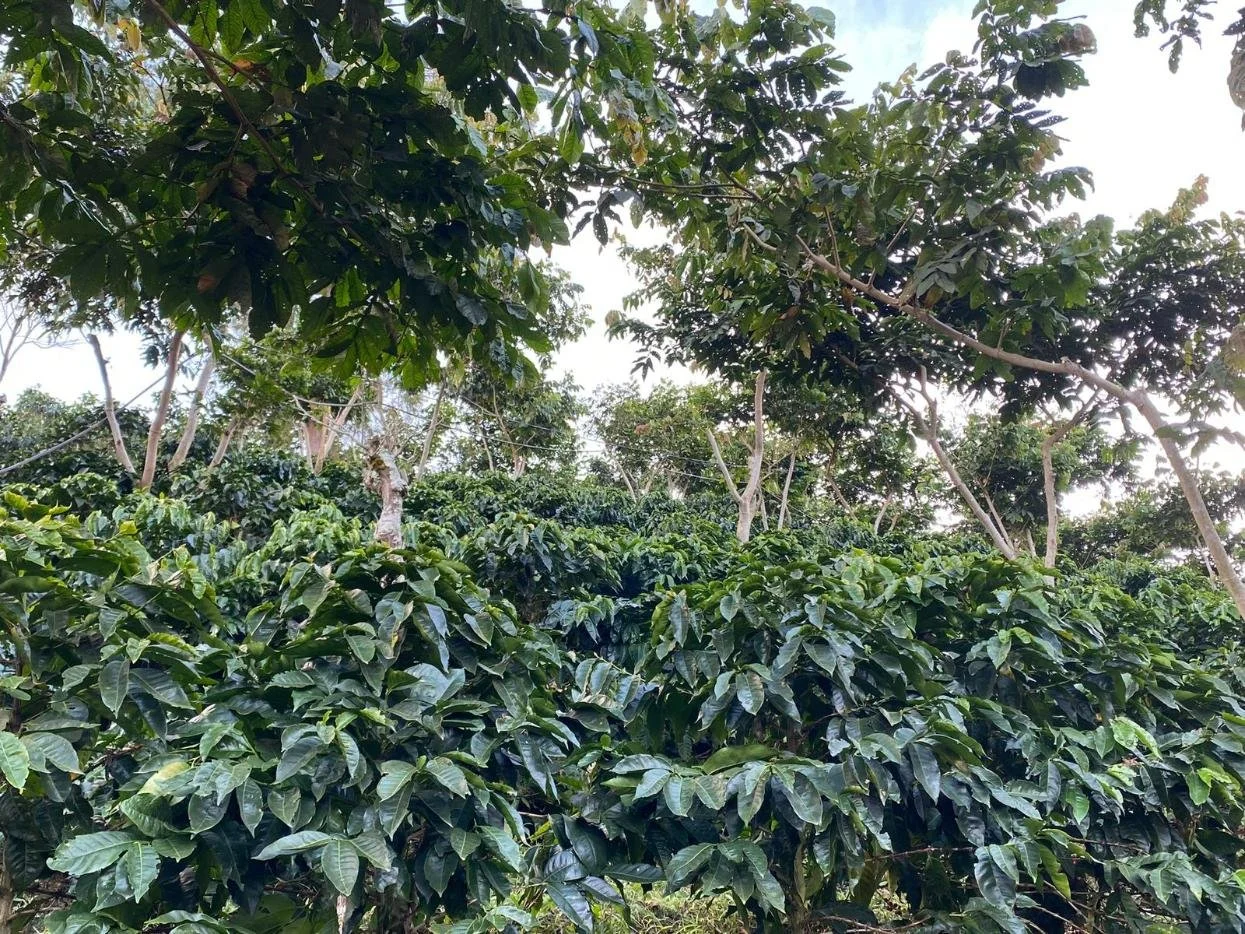
Agroforestry Policy: Expanding What’s Possible for Climate Smart Agriculture

Insights from the Retreat
Agroforestry has great potential to help foster social, economic, and ecological resilience in the face of climate change. The suite of practices, developed and stewarded by indigenous people for millennia, features the intentional integration of trees in agricultural landscapes. Today, it is commonly defined by the practices of silvopasture, alley cropping, windbreaks, and food forests.
The Volgenau Climate Initiative (VCI) has been dedicated to uplifting agroforestry since our very first retreat. In 2022, we co-hosted “Scaling Up Agroforestry for Climate Mitigation” with the Savannah Institute, which resulted in the creation of the Agroforestry Coalition. The Coalition, which Savanna Institute is currently incubating, has worked across sectors to dramatically increase agroforestry systems in the United States.
In 2023, we revisited the topic with another retreat that placed emphasis on increasing technical assistance, developing a community organizer training for agroforestry advocates across the country and exploring an indigenous-focused working group. To date, the Coalition has helped produce a white paper on the merits of agroforestry and policy priorities for advancing adoption, lobbied to ensure that measures to fund agroforestry adoption will be included in the next Farm Bill, created an agroforestry-focused speaker’s bureau, built the foundation for a national interactive map of agroforestry demonstration sites and organizations offering technical assistance, hosted a series of peer learning opportunities for scientists to engage in ecosystems services measurement, reporting and verification, and secured funding for a pilot mini-grant focused on building agroforestry nursery capacity.
This year’s retreat, co-hosted by the Agroforestry Coalition at Ghost Ranch in Northern New Mexico, was geared towards policy as a leverage point. Participants from across the country brought their professional expertise, lived experiences, and passion to the four-day “think and do” session meant to distill a clear set of policy priorities for the next five to ten years and create a collective campaign that reflects varying interests. Our attendees represented farmer organizations, conservation groups, federal and state agencies, climate advocacy groups, family foundations, and nonprofit organizations focused on conservation, agroforestry, heirs’ property rights, rural livelihood, indigenous agriculture and more.
Throughout the retreat, our attendees were able to engage in vigorous, thoughtful and spirited debate that shed light on the complexity of advancing agroforestry. There were questions such as how to engage producers so the policymakers can create practical solutions; how to balance the needs of conservation and economic viability; how to demonstrate farmer demand and need for help; and how to equitably ensure that funds get to the people who need it most.
In addition to advancing policy objectives, VCI prioritizes the need for climate leaders to recharge in natural settings and build deep and trusting relationships with peers. Throughout the days, there were moments to observe the light on the canyon walls, to walk amongst the sagebrush, and to gaze at shooting stars and a full moon.
Such shared moments help nurture long-term bonds and build the trust that’s needed to work through challenging issues and choose concrete action-items that are respectful of various viewpoints for transformational and enduring change.
At the end of our time together, our attendees honed in on five key action plans to guide the work of the Coalition and agroforestry advocates going forward:
telling the story
Tell the story of agroforestry in a way that engages, informs and inspires thought leaders, industry insiders, and policymakers in support of agroforestry efforts across the U.S. The group hopes to develop a national identity around agroforestry, gather and share success stories from diverse regions and sectors, and create a political ally map to strengthen legislative support. In addition, the group will create a concise brief that covers historical context, the current agroforestry landscape, its future challenges and opportunities, and general policy recommendations. These efforts aim to ensure agroforestry is recognized and supported in key federal appropriations for 2025 and 2026, and prepares to influence the 2029 Farm Bill.
scaling technical assistance
Build a durable strategy for scaling technical assistance capacity. The group will do this by focusing on outreach and relationship building, developing a replicable toolkit and model for agroforestry training and technical assistance, and leaning into cross-training of existing professionals, in part through peer-to-peer training. In the next year, the group will primarily focus on improving ties with soil and water conservation districts, state governments and nonprofit associations. In addition, the initiative will use data sets to develop a theory of change that is based on the geography of where agroforestry is growing fastest. By the next Farm Bill (2029), the group hopes to be able to demonstrate significant success in a handful of states to generate a more durable solution with the NRCS.
supply chains and markets
Develop policy that significantly expands support for agroforestry enterprises across the value chain. This action plan seeks to create a signature federal fund that’s focused on the diversification of agriculture, including agroforestry, small grains, diversified livestock, and perennial and other emerging climate-smart crops. Members will conduct research to understand, leverage, and build on already existing federal and state funds and programs. The group plans to develop a white paper in collaboration with the Agroforestry Coalition, build an advisory group to engage new partnerships, and get agroforestry listed as a priority in Requests for Proposals across the USDA. The group also hopes to facilitate regulation review to better support agroforestry producers when possible.
embedding equity into policy
Support unifying and cross-cutting policies aimed at ensuring that diverse populations have equitable access to Inflation Reduction Act (IRA) funding. These policy directives should make the application process easier and more accessible for historically underserved and excluded populations to ensure funds get to those who need it most. In order to do this, the group proposes research on how IRA funding can be used to support these communities. This research should consider the relative proportion of the populations targeted as historically underserved to ensure equitable funding allocations. In addition, the research needs to identify trusted organizations within the targeted populations. Those organizations have the potential to support outreach and education with both governmental organizations and targeted communities. Group members also seek to build more trusting relationships for the Agroforestry Coalition through developing equity principles.
building the bench
Expand the numbers of advocates focused on encouraging agroforestry policies. To do this, members will complete the prioritized lists of organizations and agencies initiated at the retreat, including timelines for outreach, ideal outcomes of outreach, preferred strategies and timeline for outreach. They’ll start with reaching out to more easily accessible agencies, network mapping, supporting other groups in creating communications tools, and delegating outreach responsibility. They hope to continue to build the network of advocates, by conducting fly-ins and attending conferences, gatherings and workshops. The group will also draft a model resolution which partner organizations can adapt to show their support for agroforestry, and plans to strategize for greater grassroots and producer engagement.
We are currently working to assess where funding can best launch these new initiatives into action. Our attendees have already brought so much passion, hard-work and dedication to advancing agroforestry since the first retreat, we know their on-the-ground to policy level impact will continue to grow.

retreat focus
Agroforestry is a critical component of efforts to build thriving planetary systems. Thanks to the great work of many, there is meaningful momentum for agroforestry adoption across the US, especially given the focus on "climate smart agriculture" as a federal priority in recent years. In order to secure agroforestry practices and products as a central part of the US food system, and to avoid perpetuating systemic inequities that often accompany "scaling up", there is a need for longer term strategic thinking about policy priorities and pathways. At this retreat, we will work together to shape a roadmap for advancing agroforestry policy at both federal and state levels, rooted in the needs of agroforestry practitioners and reflective of the intersectionality of agroforestry work.
This retreat has been designed for national advocacy groups, government employees (serving in an advisory capacity), non-profit leaders, funders, tribal leaders, systems thinkers, and agroforestry practitioners. Participants will weave their unique experiences and goals together into a collective voice and vision for agroforestry policy. Productive tension is expected and encouraged. Fun and play are part of the plan. This unique facilitated experience will yield new and stronger relationships between collaborators, building a sturdy relational foundation for implementing the plans developed at the retreat.
Photo credits: Pennsylvania hazelnuts courtesy of Propagate Ag, Coffee under semi-precious wood courtesy of Diego Robelo


2023 POLICY PAPER Catalyzing Agroforestry in the Farm Bill Recommendations for Resilient Agriculture
Carbon180 & Savanna Institute
AGROFORESTRY: Embedding agroforestry in the web of life
Quivira Coalition
Colorado River in Crisis: A Los Angeles Times documentary
An example of conservation groups working alongside communities rehabilitating an almost dry watershed with agroforestry practices, specifically riparian restoration.
Indigenous Agroforestry Network
Intertribal Agriculture Council: SW Annual Summit
Mediterranean Oak Woodland Working Landscapes, Chapter 2: History & Recent Trends, Peter S. Alagona, Antonio Linares, Pablo Campos
and Lynn Huntsinge
NRDC Blog | Riparian Forests: How California Farmers Can Protect Waterways
Silvopasture with Austin Unruh. YouTube
Sonoran Institute: More information about the conservation group in Mexico that’s doing the work related to the above linked documentary, Colorado River in Crisis.
The Land Is a Teacher: A Conversation with Jeff Grignon: Edge Effects
The Rural Prosperity and Food Security Act of 2024
USDA National Agroforestry Center
USDA Agroforestry Strategic Framework 2019-2024
With draft proposals, Congress reveals two visions for the Farm Bill
Carbon 180


